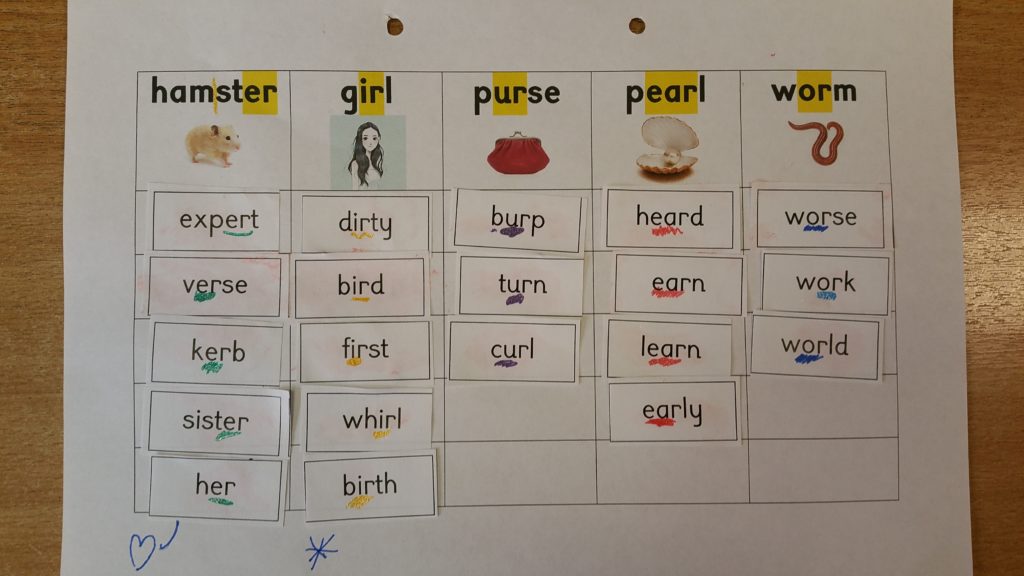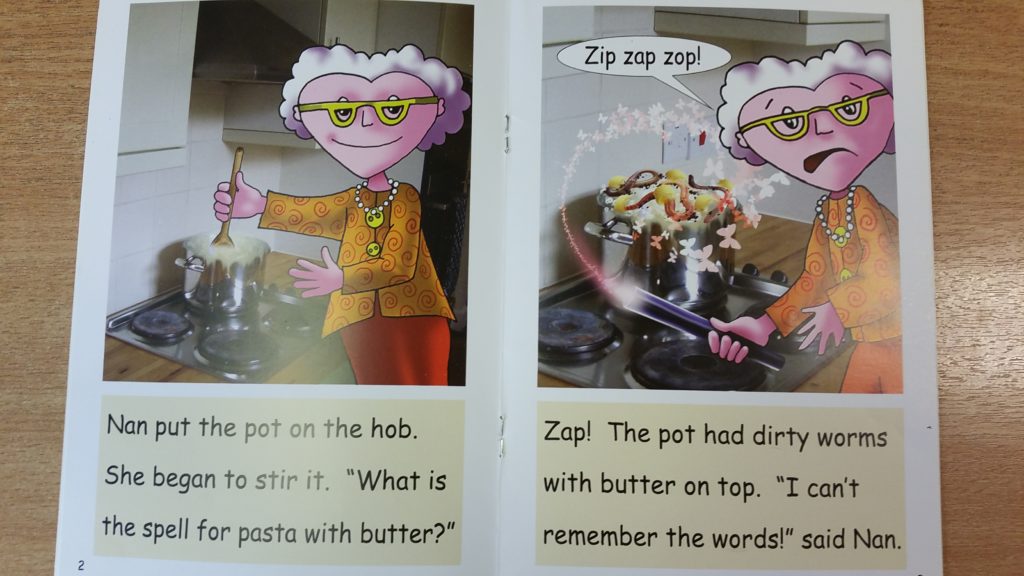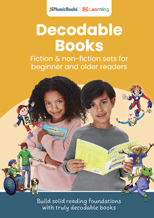I recently listened to the much-anticipated webinar given by the Reading Ape. (If you haven’t heard of the elusive Reading Ape, do check out the website which has fantastic research-based articles about reading.) Anyway, the Reading Ape discussed the research of Cattell, 1886, that showed that we read words quicker than we read individual letters. Yes, we do! This research has been repeated in recent years and confirmed. It means the brain processes words faster than groups of letters. How come? It transpires from the work of Reicher that this greater speed of processing is due to the brain recognising ‘legitimate’ letter patterns. The Reading Ape gave examples of the words CARD CRDA CRAD DRCA and showed how it was much easier to read the words CARD and CRAD because they had ‘legitimate’ spelling patterns. It was harder and slower for our brains to process CRDA and DRCA.
So, what has this got to do with sorting activities? Sorting activities take place when children are learning the Extended part of the Alphabetic Code. They need to learn that a sound can be spelled in different ways. They also need to learn which spelling fits in which words. By getting children to look carefully at the spelling patterns in words and to sort them into teams according to their spellings, children are paying attention to those ‘legitimate’ spelling patterns. This activity develops ‘orthographic processing’ which helps the brain recognise words at speed. Note that children should always read those words, not just sort them by looking at them. This a useful and important activity because it consolidates the ‘legitimate’ spellings in words and thus accelerates word recognition.

This activity can prepare and help consolidate the letter/sound bonds within a decodable text. See below a text with five spellings for the sound /er/ within the decodable book ‘Pasta with Butter’ (Dandelion Readers, Level 3).

Can you spot all the words with /er/ spellings? Now the kids have an opportunity to practice reading words with the target spellings. This will help to transfer the letter/sound bonds to long term memory and develop automaticity which is essential for reading fluency.
To see this set of books, click on the links below:
UK edition here
USA edition here (the story is different in the USA edition)
Note that there are photocopiable sorting activities in the activities books that complement these series.
#phonicsactivities #structuredliteracy #phonicsclass #readingintervention #systematicphonics


Hi thanks for this idea. I just wanted to point out that there is an error in your example. the example in the picture is incorrect. ‘Hamster’ and ‘sister’ don’t use the /ɜ:/ (‘er’) sound in UK or Australian English. They use schwa /ə/, so should not be included on the list.
Hi Ali,
Thank you for your comment. We teach children about the schwa once they start to learn to spell multi-syllabic words. At this point children need to learn that we don’t always spell sounds as we hear them. This is the case when spelling weak vowel sounds in unstressed syllables – schwas. As the schwa is a term for a number of different vowel sounds, depending on the word, it makes sense to teach the sound in the word first and then to show children how that sound changes when it appears in an unstressed syllable. In the same way that we don’t avoid teaching the spelling for /o/ in the word ‘button'(a schwa sound), or the spelling for /e/ in the word ‘chicken’ (also a schwa sound) we don’t avoid teaching the /er/ at the end of the word which is a schwa too. Why do we take this approach? We teach children to use their ‘spelling voice’. When spelling the schwa sound in the word ‘hamster’ children will need to say /er/ in their ‘spelling voice’ in order to spell the word correctly. We use the same approach when we encourage them to say ‘chick-en’ and ‘butt-on’ in a spelling voice, emphasising the spelling and not the schwa sound. I hope this makes sense. I would therefore suggest that listing the word ‘hamster’ under words with the spelling /er/ is not an error but a slightly different approach to teaching children about schwas.